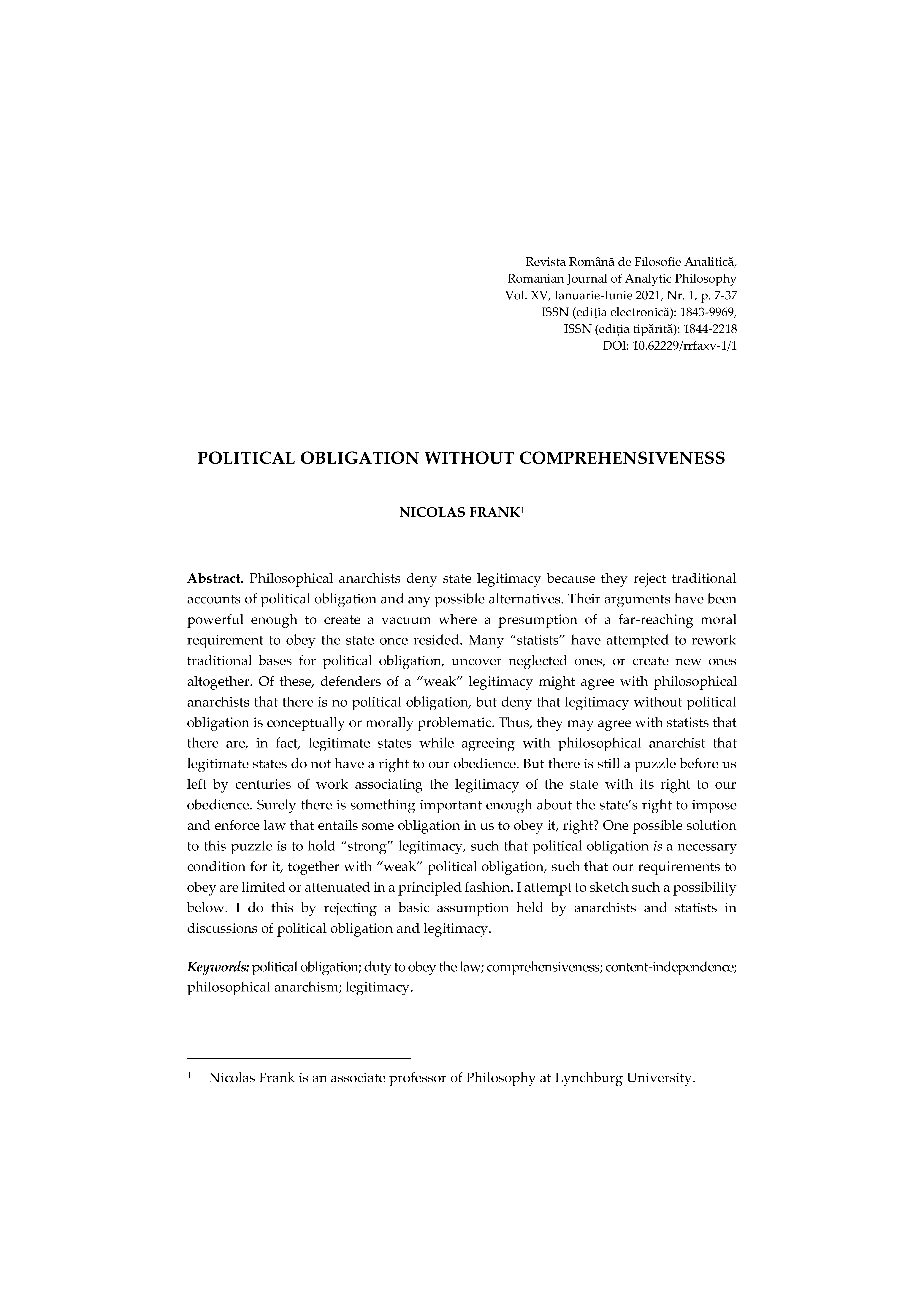POLITICAL OBLIGATION WITHOUT COMPREHENSIVENESS
DOI:
https://doi.org/10.62229/rrfaxv-1/1Keywords:
political obligation, duty to obey the law, comprehensiveness, content-independence, philosophical anarchism, legitimacyAbstract
Philosophical anarchists deny state legitimacy because they reject traditional accounts of political obligation and any possible alternatives. Their arguments have been powerful enough to create a vacuum where a presumption of a far-reaching moral requirement to obey the state once resided. Many “statists” have attempted to rework traditional bases for political obligation, uncover neglected ones, or create new ones altogether. Of these, defenders of a “weak” legitimacy might agree with philosophical anarchists that there is no political obligation, but deny that legitimacy without political obligation is conceptually or morally problematic. Thus, they may agree with statists that there are, in fact, legitimate states while agreeing with philosophical anarchist that legitimate states do not have a right to our obedience. But there is still a puzzle before us left by centuries of work associating the legitimacy of the state with its right to our obedience. Surely there is something important enough about the state’s right to impose and enforce law that entails some obligation in us to obey it, right? One possible solution to this puzzle is to hold “strong” legitimacy, such that political obligation is a necessary condition for it, together with “weak” political obligation, such that our requirements to obey are limited or attenuated in a principled fashion. I attempt to sketch such a possibility below. I do this by rejecting a basic assumption held by anarchists and statists in discussions of political obligation and legitimacy.




